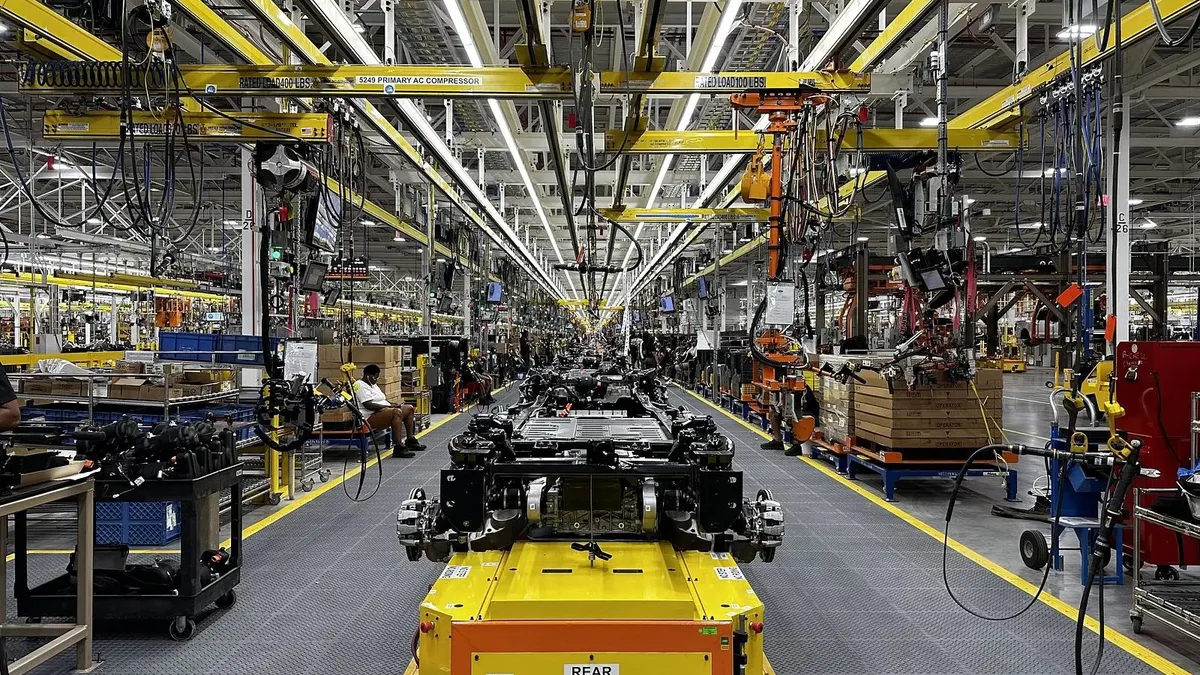The automotive company is a complex and dynamic sector that has shaped the modern world. It encompasses a wide range of activities, from the design and engineering of vehicles to their manufacturing, marketing, and distribution.
The Evolution of the Automotive Industry
The automotive industry has undergone significant evolution since the invention of the automobile in the late 19th century. Early automobiles were luxury items, accessible only to the wealthy. However, mass production techniques pioneered by Henry Ford in the early 20th century made cars affordable to the middle class, revolutionizing transportation and society.
In the decades that followed, the automotive industry continued to innovate, introducing groundbreaking technologies such as automatic transmissions, power steering, and air conditioning. The mid-20th century saw the rise of the American automotive industry, with iconic brands like Ford, General Motors, and Chrysler dominating the global market.
The Global Automotive Industry Landscape
Today, the automotive company is a truly global phenomenon. Major automotive companies operate on a global scale, with manufacturing plants and sales networks in numerous countries. This globalization has led to increased competition, forcing companies to continuously innovate and improve their products.
Asia has emerged as a major player in the automotive industry, with countries like Japan, South Korea, and China producing high-quality and affordable vehicles. European automotive companies, particularly those from Germany, have a strong reputation for engineering excellence and luxury vehicles. The United States remains a significant market for automobiles, with a strong focus on SUVs and trucks.
Key Trends Shaping the Automotive Industry
Several key trends are shaping the future of the automotive industry:
- Electrification: Electric vehicles (EVs) are rapidly gaining popularity, driven by environmental concerns and technological advancements. Major automotive companies are investing heavily in EV development, and many are planning to launch a wide range of electric models in the coming years.
- Autonomous Vehicles: Self-driving cars are no longer a futuristic concept. Automotive companies are actively developing autonomous vehicle technology, with the potential to revolutionize transportation and urban planning.
- Connectivity: Connected cars are equipped with advanced technologies that allow them to communicate with other vehicles, infrastructure, and the internet. This connectivity enables features like real-time traffic updates, remote diagnostics, and over-the-air software updates.
- Shared Mobility: Car-sharing services and ride-hailing apps are transforming the way people move around. These services offer convenient and affordable transportation options, particularly for urban dwellers.
- Sustainability: The automotive industry is increasingly focused on sustainability, with a focus on reducing emissions, conserving resources, and minimizing environmental impact.
Challenges and Opportunities for Automotive Company
The automotive industry faces numerous challenges, including:
- Stringent Emission Regulations: Governments around the world are imposing stricter emission standards, forcing automotive companies to develop cleaner and more efficient vehicles.
- Rising Costs of Raw Materials: The increasing cost of raw materials, such as steel and aluminum, can impact the profitability of automotive companies.
- Economic Uncertainty: Economic downturns can reduce consumer demand for automobiles, leading to lower sales and profits.
- Technological Disruption: Rapid technological advancements can disrupt the traditional business models of automotive companies.
Despite these challenges, the automotive industry also presents significant opportunities:
- Emerging Markets: Emerging markets, particularly in Asia and Africa, offer significant growth potential for automotive companies.
- New Business Models: Automotive companies can explore new business models, such as subscription services, mobility-as-a-service, and software-as-a-service.
- Innovation: Continuous innovation in technology and design can help automotive companies differentiate their products and attract customers.
- Sustainability: A focus on sustainability can enhance the reputation of automotive companies and attract environmentally conscious consumers.
The Future of the Automotive Company
The future of the automotive company is uncertain, but one thing is certain: it will continue to evolve at a rapid pace. As technology advances and consumer preferences change, automotive companies will need to adapt to stay competitive.
The automotive industry is a vital sector that plays a crucial role in the global economy. By understanding the key trends, challenges, and opportunities in this industry, we can gain valuable insights into the future of transportation and mobility.





